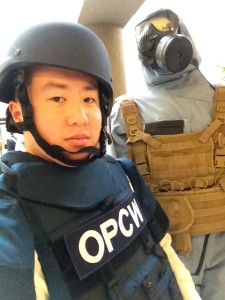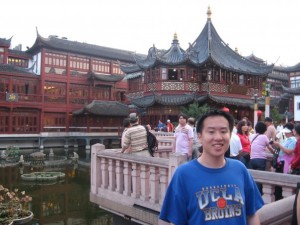Does being a specialist in a type of Model UN committee help win more gavels? Is being a generalist — trying a variety of MUN committees — more of an educational experience? These are the type of questions that Head Delegates and Faculty Advisors may think about as they try to distribute committee assignments, but more importantly every delegate should ask themselves these type of questions so that they can shape their own Model UN careers. I’ll first share my own experience having done both and then mention a few advantages for both specialists and generalists.
Personally, I specialised in General Assembly committees as a high school delegate and more specifically the majority of my GA assignments were in DISEC (as well as IAEA). I loved talking about nuclear weapons, biological and chemical weapons, small arms trafficking, landmines, and so forth. Two of the greatest MUN challenges I ever had were being assigned to represent Saddam Hussein-era Iraq on nuclear non-proliferation and to represent the George W. Bush-era United States on space security policy — two assignments where pretty much the entire DISEC committee was against me. (For those of you in IB, I even wrote my Extended Essay on the Strategic Arms Limitation Talks).
However, I was assigned to the WHO, a GA-sized committee, during one of my last high school conferences. That was because one of the topics was bioterrorism, my area of expertise, but the other topic was a health-related development topic. It was in that committee where I was first exposed to development, and to my surprise, it was fun! I only realised toward the end of my high school MUN career that there was a whole different field of topics out there that I might enjoy more than disarmament-type topics.
Although I took a full year course on biotechnology as a freshman at UCLA, I soon found myself gravitating toward courses on international economic development. Those courses exposed me to a different set of actors than I was used to in disarmament; instead of focusing on Russia, North Korea, Iran, and NATO, I was now learning about China, India, Brazil, and the Four Asian Tigers. I ended up studying abroad at Fudan University in Shanghai, China which exposed me to the role of multinational corporations and state-owned enterprises in development. My newfound interest in multinational corporations led me to chairing Model UN committees of the World Economic Forum and to pursuing business internships with Boeing and AT&T. Despite majoring in political science, I got my first job out of undergrad as a manager at AT&T in San Francisco.
In retrospect, that WHO committee in high school changed my entire academic and professional trajectory. As for MUN, I turned from an disarmament specialist into a generalist as I never got to specialise in development committees in university because I was sometimes assigned to DISEC or crisis committees by my Head Delegates due to my prior experiences. Fortunately, I believe the generalist experience made me more well-rounded in terms of both substance and skills and I am grateful my Model UN career turned out that way.
So, should you be a generalist or a specialist? I think that depends on your goals and the type of Model UN career you want to have. Having been a specialist in high school but a generalist in university, here are the top three advantages in my opinion for both paths.
Advantages for Specialising:
- You are passionate about the topics in that committee. For example, you would research about these topics in your free time anyway.
- You gain familiarity with country policies, resolutions, and concepts which you can use across multiple topics in that committee. This makes research easier, and you can sound like an expert on other countries’ policies since you’ve heard them before in prior committees.
- You see the some of the same delegates over and over who also specialise in this committee and build a network around this. For example, Ryan was a Security Council specialist in high school and would compete against the same delegates over and over.
- You can cite your expertise and research in these topics for interviews, particularly if it’s related to your professional interests.
The main disadvantages are that you could become pigeonholed into this type of committee for assignments, and in the long-run you could be less effective helping other delegates due to your narrow substantive exposure.
Advantages for Diversifying:
- You get to learn a variety of topics. This is an academic challenge, but more importantly this helps broaden your worldview as you may not even be familiar with topics that you may eventually want to study in university or work in as a career.
- You learn different types of skills in different committees, especially if they span different UN organs (GA, ECOSOC, Security Council, as well as crisis).
- You develop a multidisciplinary approach to solutions, meaning you can bring in both security perspectives and development perspectives to the same topic. This is increasingly applicable in real life.
- You could build an arsenal of diverse topical experience that gives you more flexibility in applying to different types of internships and jobs.
The main disadvantage is that it may take a while to like MUN or feel good at it because every committee is substantively new. Also, specialists, particularly at the university level, will have built up compounded knowledge and experience in their specialisation that will be hard for generalists to beat in committee.
**
Ultimately, the debate between being a specialist versus a generalist is up to you and your Model UN, academic, and career goals. You may not necessarily always have full control over your committee assignments, but you could always reflect on what’s best for you and communicate that to your Faculty Advisor or Head Delegate so that you can shape your Model UN experience accordingly.



